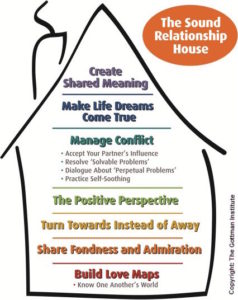When is it okay to introduce your kids to a date after divorce or separation?
This is a common question for newly separated or divorced parents. Like so many things involving children after divorce, the answer is “it all depends.” But there are a few ground rules that can help in the transition to dating.
In evaluating when to let children know about a new romantic partner, the goal is always to protect the child’s psychological best interests. Much depends on the child’s age and the quality of your relationship before and after your separation. As noted in a previous post, watching parents treat each other with disrespect and lack of affection harms kids even more than having to shuffle between two homes.
Everyone is different with regard to dating readiness. Some people will wait for months, some for years. Consider, though, that when a relationship has been unhappy, it’s important to give yourself time before jumping right into Match.com or eHarmony. Make use of this found time alone when you do not have the kids. Get to know yourself again. People are often surprised to discover that they can enjoy a kid-free weekend or weeknight without feeling guilty. Many have said it is an unsuspected silver lining in divorce. Time alone without kids is often a rarity in marriages where fathers and mothers both devote themselves to family life and the nurture and growth of their children.
Individual psychotherapy during this period can help you to reclaim the parts of yourself that have been lost or damaged. Taking this opportunity before dating again will help you, your kids, and your eventual romantic partner. No one wants to date someone on the rebound from a marriage. Dating to fill the void or to build your self-esteem will not work in the long term, bringing more harm than comfort.
Eventually, the time will come when you feel ready to explore relationships again. When the transition to living separately is established and custody has been worked out, agreed upon, and is going smoothly, parents will begin to think about dating.
Keep in mind the following suggestions to help you, your kids, and your ex ease into this new and often threatening territory.
Some Guidelines for Dating Post-Divorce
1. Children need to establish a routine with each parent. This is best done when the custodial parent is fully present, undistracted by a romantic interest.
2. Dating should be done during non-custodial times. The introduction of a new partner is often confusing to young children, especially during the first year after a divorce. In older kids, who may be exploring their own sexuality, seeing their parent with another partner can make them feel self-conscious and embarrassed.
3. It is important to not create a climate of anxiousness about where they belong in each parent’s lives. Children need to feel like they come first. If a romantic partner is introduced too soon, this sense of secure attachment will be compromised and can create anxiety.
4. Do not bring a partner home for the night on your evening with your child. Waking up in the morning and seeing that a parent’s boyfriend or girlfriend has slept over can be confusing and hurtful. Kids will feel an allegiance to their other parent and will feel protective of them, fearing they’d be hurt by knowing that there is someone else in the house.
5. When the time comes to date openly, it is a courtesy to inform the other parent. Letting your ex-partner know that you are dating and want to introduce a serious relationship to your children allows the non-dating partner to process this news without being blind-sided, for example by seeing you with another person at children’s events. Do not let your children be the ones to tell the other parent that mommy or daddy has a new love, and certainly don’t ask them to keep secrets from their other parent. They should not be put in this position. When children innocently expose this information, it can engender angry and painful reactions that can cause the children to feel guilty, sad, and embarrassed.
6. Always treat your ex-partner with respect whether their non-custodial parent is present or not. Kids learn from watching. When you begin to date, show respect to your ex-partner and to your children by not flaunting your new partner. Respect boundaries with regard to public displays of affection. For an ex-spouse to see their former partner kissing during a recreational event will most likely cause anger or hurt. It is common for one party to feel jealous or possessive when they realize that their former spouse is dating. This is a tender time for everyone. Remember to be kind and respectful to each other. This role-modeling will help your children to assimilate a new person into their lives in a healthy way.




 A great marriage needs a strong foundation. Remember the story of the three little pigs? The first little pig built his house of straw and the second made his house with wood. The third pig built his house of brick while the first two pigs played, taunting him for working so hard.
A great marriage needs a strong foundation. Remember the story of the three little pigs? The first little pig built his house of straw and the second made his house with wood. The third pig built his house of brick while the first two pigs played, taunting him for working so hard.

